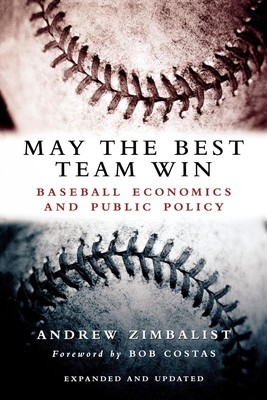
- We will send in 10–14 business days.
- Author: Andrew Zimbalist
- Publisher: Brookings Institution Press
- ISBN-10: 081579729X
- ISBN-13: 9780815797296
- Format: 15.1 x 23.3 x 1.5 cm, minkšti viršeliai
- Language: English
- SAVE -10% with code: EXTRA
Reviews
Description
The business of baseball stands in sharp contrast to the game's wholesome image as America's favorite pastime. Major league baseball is a deeply troubled industry, facing chronic problems that threaten its future: persistent labor tensions, competitive dominance by high-revenue teams, migration of game telecasts to cable, and escalating ticket prices. Amid the threat of contraction, existing franchises are demanding public subsidies for new stadiums, while viable host cities are begging for teams. The game's core base of fans is aging, and MLB is doing precious little to attract a younger audience. According to Andrew Zimbalist, these problems have a common cause: monopoly. Since 1922 MLB has benefited from a presumed exemption from the nation's antitrust laws. It is the only top-level professional baseball league in the country, and each of its teams is assigned an exclusive territory. Monopolies have market power, which they use to derive higher returns, misallocate resources, and take advantage of consumers. Major league baseball is no exception. In May the Best Team Win, Zimbalist provides a critical analysis of the baseball industry, focusing on the abuses and inefficiencies that have plagued the game since the 1990s, when franchise owners appointed their colleague Bud Selig as MLB's "independent" commissioner.
EXTRA 10 % discount with code: EXTRA
The promotion ends in 22d.16:19:31
The discount code is valid when purchasing from 10 €. Discounts do not stack.
- Author: Andrew Zimbalist
- Publisher: Brookings Institution Press
- ISBN-10: 081579729X
- ISBN-13: 9780815797296
- Format: 15.1 x 23.3 x 1.5 cm, minkšti viršeliai
- Language: English English
The business of baseball stands in sharp contrast to the game's wholesome image as America's favorite pastime. Major league baseball is a deeply troubled industry, facing chronic problems that threaten its future: persistent labor tensions, competitive dominance by high-revenue teams, migration of game telecasts to cable, and escalating ticket prices. Amid the threat of contraction, existing franchises are demanding public subsidies for new stadiums, while viable host cities are begging for teams. The game's core base of fans is aging, and MLB is doing precious little to attract a younger audience. According to Andrew Zimbalist, these problems have a common cause: monopoly. Since 1922 MLB has benefited from a presumed exemption from the nation's antitrust laws. It is the only top-level professional baseball league in the country, and each of its teams is assigned an exclusive territory. Monopolies have market power, which they use to derive higher returns, misallocate resources, and take advantage of consumers. Major league baseball is no exception. In May the Best Team Win, Zimbalist provides a critical analysis of the baseball industry, focusing on the abuses and inefficiencies that have plagued the game since the 1990s, when franchise owners appointed their colleague Bud Selig as MLB's "independent" commissioner.


Reviews